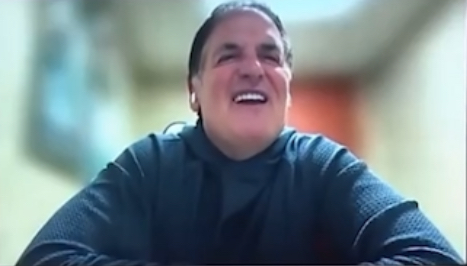Mark Cuban and Charles Barkley are prominent figures who have taken a vocal stance against former President Donald Trump, positioning themselves as potential Democratic contenders for the 2028 presidential election. Cuban, a billionaire entrepreneur and owner of the NBA team Dallas Mavericks, has often been noted for his far-left views, which resonate negatively with many Trump supporters. This animosity towards Cuban has led to a flood of memes comparing him to long-time MSNBC anchor Rachel Maddow, highlighting a perceived alignment with progressive ideals. On a recent episode of “The Steam Room” podcast, Cuban reflected on the emotional toll of the 2024 election results, likening the experience to the disappointment of losing a basketball game, and revealed that he has considered a presidential run since 2020.
In discussions about healing political divisions, Cuban emphasized that figures like Barkley, who has also expressed strong anti-Trump sentiments, could help unify the country. Barkley has a long history of making incendiary remarks against Trump supporters and revolutionizing social discourse, including claims about resorting to violence against those wearing pro-Trump attire. This deeply rooted animosity has been a defining characteristic of Barkley’s public persona since 2015, providing a stark contrast to his more recent statements about fostering reconciliation in politics.
Cuban’s journey has seen a shift in how he discusses Trump. Despite his past criticisms of the former president, following Trump’s significant election win over Kamala Harris, Cuban publicly acknowledged Trump’s victory, congratulating both him and Elon Musk on social media. This apparent recalibration of his views signals a strategic move, possibly to align himself more closely with mainstream political sentiments post-election in a bid to repair his image among potential supporters.
Adding to the evolving political landscape, Cuban proclaimed himself as “America First,” expressing a willingness to assist in domestic issues like healthcare, which he previously collaborated on during Trump’s first term. This newfound commitment to prioritizing American interests marks a significant pivot in Cuban’s narrative and suggests he may be attempting to bridge divides that he once stood firmly against. His deletion of pro-Kamala Harris posts further underscores this shift, possibly in an effort to position himself favorably within the current political climate.
Meanwhile, Barkley’s commentary on the Democratic Party has continued to evolve. He has pointedly criticized the lack of a coherent strategy within the party, urging the Democratic establishment to remain quiet about election results. This criticism reflects a broader sentiment of disillusionment with party politics, indicating that even prominent former athletes like Barkley are seeking a reevaluation of conventional Democratic strategies that they feel have faltered.
In summary, the trajectory of Mark Cuban and Charles Barkley as they contemplate potential political aspirations illuminates the intersection of celebrity culture and political engagement in the contemporary landscape. As they invite discussions about healing divisiveness and the future of the Democratic Party, their past contradictions and evolving stances toward Trump and the electoral process reveal the complexities of aligning personal belief systems with broader political narratives. Their potential candidacy is likely to draw considerable public attention, signaling a unique blending of traditional politics with the celebrity influence that has come to define parts of American political discourse.

